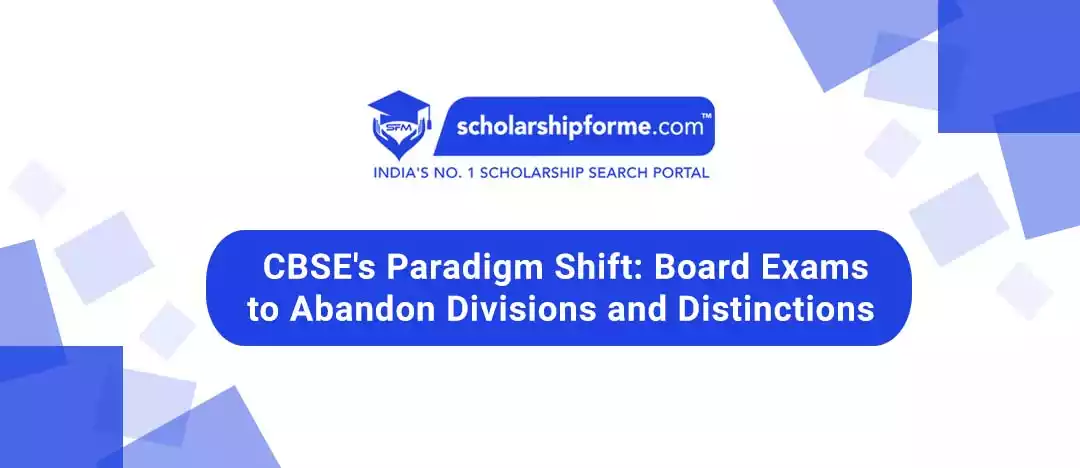
CBSE's Paradigm Shift: Board Exams to Abandon Divisions and Distinctions
The upcoming Central Board of Secondary
Education (CBSE) class 10 and 12 board exams, scheduled to commence from
February 15, will see a departure from the conventional practice of awarding
divisions and distinctions to students.
CBSE Examination Controller Sanyam Bhardwaj, in an
official release, disclosed that neither divisions nor distinctions will be
conferred upon students, introducing a shift in the way academic achievements
are traditionally acknowledged.
The pivotal decision places the
responsibility of determining the best five subjects for calculating students'
marks squarely on the shoulders of the admitting college. In instances where a
candidate has offered more than five subjects, the discretion to select the
most relevant subjects for assessment will rest with the admitting institution
or employer. This shift in approach emphasizes a move towards a more institution-centric
evaluation rather than a centralized board declaration.
The official release clarified, stating,
"If a candidate has offered more than five subjects, the decision to
determine the best five subjects may be taken by the admitting institution or
employer. Further, it is informed that the Board does not
calculate/declare/inform the percentage of marks." This delineation
reinforces the autonomy granted to educational institutions and employers in
shaping the evaluation criteria.
In response to queries raised about the
criteria for calculating students' percentages in the board examinations, the
release provided clarity on the board's stance. It highlighted that the Board
refrains from calculating, declaring, or informing the percentage of marks. Any
requirement for percentage calculation, whether for higher education or
employment purposes, is delegated to the admitting institution or employer.
This underscores a decentralization of the grading system, putting the onus on
the institutions directly involved with the students.
Notably, this is not the first instance of
CBSE deviating from conventional practices. In the previous academic year, the
board opted not to release merit lists for class 10 and 12 students and
refrained from announcing any toppers. The rationale behind this decision was
articulated in the CBSE result statement, citing a desire to mitigate unhealthy
competition among students. By eschewing the traditional accolades of toppers
and merit lists, CBSE aimed to foster a more collaborative and supportive
educational environment.
The decision to reiterate this approach for the upcoming board exams aligns with CBSE's commitment to promoting a more inclusive and nurturing academic culture. By allowing admitting institutions and employers to play a crucial role in determining the best subjects and calculating percentages, CBSE seeks to shift the focus from individual achievements to a more holistic evaluation process that considers the diverse strengths and aspirations of students. This move is reflective of an evolving educational landscape that values cooperation over competition and acknowledges the multifaceted nature of academic success.
0 comments on this post